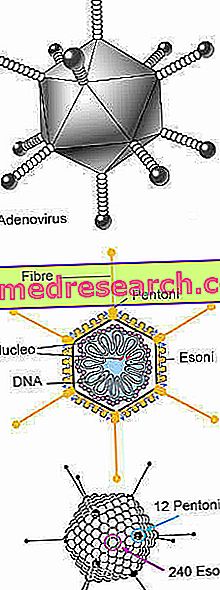
Scientific name
Eugenia caryophyllus C. Spreng, sin. Eugenia caryophyllata ThumbergFamily
MyrtaceaeOrigin
Moluccan Islands, Madagascar, Indonesia, ZanzibarUsed Parts
Dried floral buds (Pharmacopoeia) of the plant are usedChemical constituents
- Tannins;
- Flavonoids;
- Polyphenols;
- Essential oil, consisting of 90% eugenol.
Cloves in herbal medicine: properties of cloves
Cloves are commonly used as a spice in the kitchen and for disinfectant and anti-inflammatory decoctions.
The essential oil of cloves, which was used by the Egyptians to embalm the corpses, is endowed with high antimicrobial power against fungi and bacteria, anti-inflammatory and analgesic: in fact, it can be used in alcoholic solutions for gargling and for oral intake, in capsules, vaginal creams and eggs.
Biological activity
Numerous properties are attributed to cloves, including analgesic, anti-inflammatory and antiseptic ones. More precisely, these activities are ascribed above all to eugenol contained in the essential oil extracted from the plant.
The anti-inflammatory action has been confirmed by some research on this subject and appears to be carried out through different mechanisms, such as the inhibition of leukocyte migration to inflamed tissues and the inhibition of the cyclo-oxygenase enzyme activity, ie of the enzyme responsible for synthesis of pro-inflammatory prostaglandins.
Similarly, the antiseptic action attributed to the essential oil of cloves was also confirmed. Indeed, several studies conducted in vitro showed that both the oil and eugenol extracted from the latter possess a marked antibacterial activity, both against Gram-positive microorganisms (including methicillin-resistant Staphylococcus aureus strains), and against Gram-negative micro-organisms (including Escherichia coli ).
Furthermore, several compounds present within the cloves have been shown to inhibit the growth of bacteria responsible for the onset of dental caries and other periodontal disorders.
Eugenine (a phenolic compound contained in the oil of cloves) has instead shown to possess antiviral properties, which seem to be exercised through a mechanism of action that involves the inhibition of viral DNA polymerases.
Another study, however, has highlighted the interesting hepatoprotective properties of which the eugenol obtained from the essential oil of cloves is endowed.
The protective action against the liver is carried out by eugenol both through an antioxidant action, which prevents lipid peroxidation, and through a mechanism of free-radical scavenging.
Finally, some studies have shown that the oil of cloves is also able to exert a neuroprotective, antimutagenic and antithrombotic action.
Cloves against pain and inflammation of the teeth and the oropharyngeal cavity
Thanks to the marked analgesic, anti-inflammatory and antiseptic properties of which the essential oil of cloves is endowed, its use has obtained official approval for the treatment of inflammation and pain in the teeth, periodontal and oropharyngeal mucosa.
For the treatment of inflammation of the oropharyngeal mucosa, the essential oil can be used in aqueous solutions (in concentrations of 1-5%) which will then be used to rinse and gargle.
In case of tooth pain or gum inflammation, instead, the essential oil of cloves can be applied directly on the affected area.
Cloves in folk medicine and homeopathy
In folk medicine, clove oil is used internally for the treatment of gastric ulcers. Externally, however, traditional medicine exploits this oil for the treatment of colds and headaches; as well as using it as a local analgesic remedy and as a dental antiseptic.
Moreover, in folk medicine it is a fairly common practice to place a clove in correspondence of dental caries, in such a way as to alleviate the pain they cause.
In Indian medicine, on the other hand, cloves are used to treat disorders such as colic, flatulence, gastropathies, anorexia, halitosis, eye disorders and toothache.
The cloves are also used in homeopathic medicine, where they can easily be found in the form of granules and oral drops.
In this context, cloves are used in case of mouth ulcers, gingivitis, dental abscesses, sinusitis and diarrhea.
The dose of homeopathic remedy to be taken can be different between one individual and another, also depending on the type of disorder that needs to be treated and the type of preparation and homeopathic dilution that is intended to be used.
Side effects
If properly used, the cloves - as well as the oil obtained from them - should not cause any side effects of any kind.
However, if the essential oil of cloves is very concentrated, it could cause irritation of mucous membranes and tissues. In addition, contact dermatitis may occur in sensitive individuals.
Contraindications
Do not use in case of peptic ulcer (oral use), dermatitis (external use) and hypersensitivity to one or more components.
Pharmacological Interactions
Cloves and their essential oil could establish drug interactions with:
- Gastrolesive drugs (essential oil);
- anticoagulants;
- Low molecular weight heparins;
- Antiplatelet agents;
- Thrombolytic agents.



